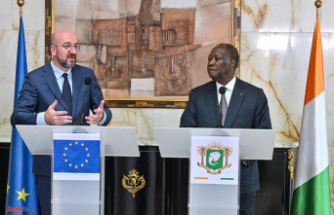Shinzo Abe was Japan's longest serving prime minister. He is best known for his hawkish foreign policies and signature economic strategy, which became known as "Abenomics". The 67-year old Abe was a popular and controversial politician who led the Liberal Democratic Party to victory twice.
His tragic death recalls images from pre-war Japanese politics when assassinations were commonplace if not routine. Japan's march to WWII was marked by a series of political assassinations.
Popular and divisive politician, Abe knew it was part of his trade that he had to incite strong emotions among the masses. Abe was aware from childhood that the masses were not always friendly and that he needed to defend himself against criticism.
Abe's brief stint as prime minister in 2006 was short and controversial. He made a remarkable political comeback in 2012 and remained in power until 2020, when he resigned due to health reasons.
Japan was in recession at the time he started his second term. His economic policy was creditable with helping to return growth to an economy that was struggling.
He was responsible for Japan's recovery after the 2011 tsunami and earthquake in Tohoku that killed almost 20,000 people. This led to the meltdown of Fukushima nuclear power reactors.
Abe had some unexpected moments too, like dressing up as Super Mario at Rio Olympics' closing ceremony in preparation for the 2020 Tokyo Games.
After weeks of speculation, he announced that he had experienced a relapse in ulcerative colitis.
Yoshihide, a close party ally, succeeded him but was still considered a powerful figure within Japanese politics.
Abe, the son of Shintaro Abe, former foreign minister and grandson Nobusuke Kishi was born into a political family. Abe believed his mission was to carry on the legacy of his ancestors, to make Japan great and strong and to be a force to reckon with on the international stage.
Kishi was an example to him. He worked to improve Japan's economic control over China and Manchuria in World War II and was then instrumental in the creation of the Liberal Democratic Party (LDP) political dominance. Abe's dislike of protesters could be rooted in the fact that his grandfather, who was revered, was forced from power in 1960 after a massive anti-government demonstration.
Abe was elected first to parliament in 1993. In 2005, he became chief secretary to the cabinet. He quickly rose to the top, becoming Japan's youngest prime minister after wartime in 2006.
However, his administration was hit hard by a string of scandals that included the loss of records about pensions and the resulting affect on 50 million claims.
In July 2007, the LDP suffered a heavy loss in the upper house elections. In September 2007, he was forced to resign due to ulcerative colitis.
In 2012 Abe was elected prime minister and stated that he had overcome the disease through medication.
In 2014 and 2017, he was again reelected, becoming Japan's longest-serving prime Minister.
Although his popularity fluctuated, he was largely unchallenged by his influence in LDP, which changed its rules to allow him to be a third term leader.
Abe reiterated the importance of being an equal partner and ally with the US and other Western countries, despite his hawkish foreign policy stance.
His long-held goal to revise Japan's postwar pacifist constitution in order for it to become a "normal" country was fueled by this. Conservatives view the US-drafted constitution as a reminder about the humiliating defeat suffered by Japanese troops during WWII.
His grandfather's influence also contributed to Abe's fear of China becoming the dominant force in Asia. This reinforced his conviction that Japan must pull its weight to become a military force to defend itself.
These militaristic and nationalistic platforms caused deep divisions and horrified parts of the population who cherished the pacifist constitution. They also gave voice and credibility to revisionist and nationalist groups, sentiments, and movements that for a long period in post-war Japan were a minority and could only be heard in whispered tones.
His nationalist views often raise tensions with China, South Korea and South Korea, especially after his 2013 visit at Tokyo's Yasukuni shrine. This controversial shrine is linked to Japan's militarism during WWII and before it.
Left-wing Japanese factions were also annoyed by the repeated visits. They viewed it as Abe's attempt to gloss over Japanese atrocities during World War II.
He pushed for collective self-defense in 2015, which allowed Japan to mobilize troops overseas to defend itself as well as its allies.
This controversial change was approved by Japan's parliament despite opposition from Japan's neighbors and the Japanese public.
His bigger goal to revise the constitution to officially recognize Japan's military is still unfulfilled and remains a controversial topic.
He also failed to secure the return to Japan of the Northern Territories, a chain comprising disputed islands located off the northern prefecture in Hokkaido. These islands are claimed by Russia and Japan.
Abe's relationship with Donald Trump, the former US president, was creditable with saving Japan from the US-led trade tariffs.
He was the leader of "Abenomics", a policy package that aimed to make Japan strong and recover the economy from the deflation. While maintaining fiscal discipline,
These policies were so popular that Abe and his LDP party returned to power in 2012. His efforts were met with a significant challenge in 2020, when the country went back into recession. His effectiveness was questioned due to this and other slowdowns.
Concerns about Abe's handling of the Covid-19 pandemic further hampered Abe's popularity.
Critics claim that his campaigns to boost domestic tourism led to an increase in infections.
Other promises of Abenomics, such as empowerment of women in the workforce and tackling nepotism, have not been fulfilled.
He is internationally credited with the establishment of the Trans-Pacific Partnership, which is a huge trade agreement between 11 nations. It was established after the abrupt withdrawal of the US by Mr Trump's administration.
Because Abe declined to name a successor, his resignation announcement sparked internal conflict among LDP factions.
Yoshihide Sug was eventually elected to succeed him. However, Abe remained in control of domestic politics in Japan even after Suga was succeeded by Yoshihide Suga.
Abe campaigned for a candidate for Japan's upper chamber in Nara on the 8th of July.
The 41-year-old was giving a speech when he was attacked by a gunman. He is believed to have been a former member of Japan's Self-Defense Force.
NHK and other news reports claim that the suspect stated he was unhappy with Abe, but that it had nothing to do with political grudges.
Abe was conscious at the time he was taken to hospital but later died from his injuries.
He has left his wife Akie, a Japanese radio DJ, whom he had married in 1987.
Andreas Illmer provides additional reporting












